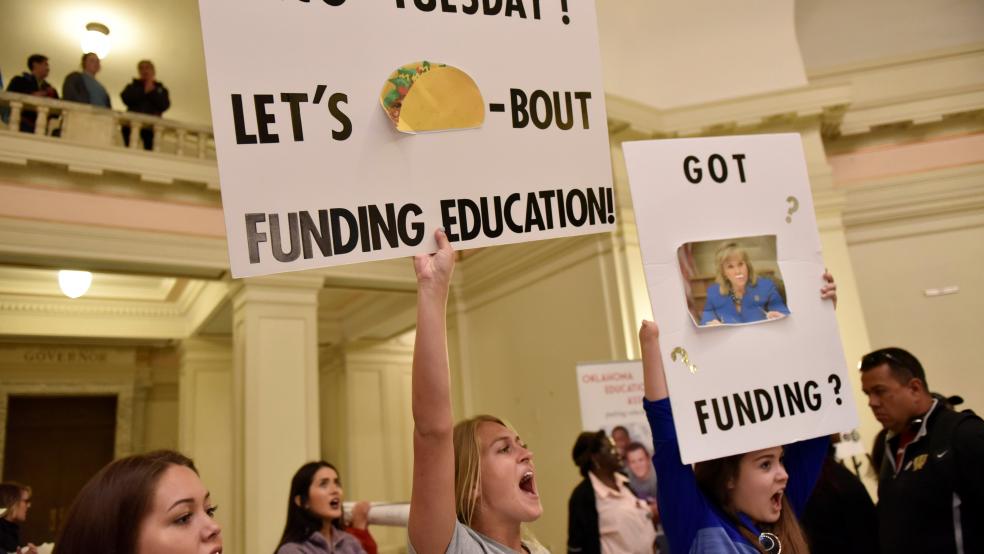Teachers in Arizona have announced they will go on strike this week, joining educators in Oklahoma, West Virginia and Kentucky protesting low wages and insufficient school funding in their states. But school teachers aren’t the only public employees who say they are underpaid and underappreciated. According to a New York Times piece Monday, public servants around the country — and there are about 20 million of them — are losing their grip on what was once a solidly middle-class way of life.
In the decades following World War Two, becoming a teacher, policeman or bus driver was seen as a reliable ticket to a secure economic future, Patricia Cohen and Robert Gebeloff write. But now public employees across the country face increasing workloads, stagnant wages and insecure financial futures. And in the last few years, state and local governments haven’t been hiring much. As a result, the percentage of public employees in the overall workforce has fallen to levels not seen since the late 1960s.
State governments are being squeezed from all sides, according to the Times. Anti-tax activists have successfully reduced revenues through tax cuts in many states, including some of the states experiencing protests over teacher pay, reducing the pool of available funds for all kinds of public spending. At the same time, retiring baby boomers are consuming an increasing share of what’s left through pension and benefit packages that were never properly funded.
The Times piece includes some telling personal stories, including that of Eldon Johnson, a 40-year-old who cares for special-needs children in Norman, Oklahoma. Johnson earns $12.50 an hour, pay so low that he needs another full-time job to make ends meet. “There’s no way I could make it without a second job, unless I lived in a box, and maybe had a moped,” Johnson told the Times.


